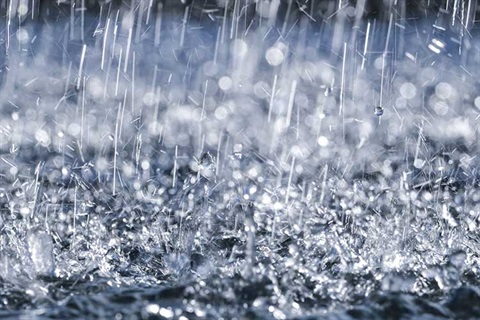Water saving tips

Here are some steps to reduce water consumption and prevent waste. The first and largest water efficiency gain can be made outside, with careful use of water on lawns and gardens.
Inside the home begin with the easy ones: for example, dripping taps will waste around 2000 litres a month.
In the kitchen
- Install tap aerators (generally under $5 each) on all your taps. This reduces the volume of water coming out of the tap but maintains good water pressure.
- You don't need a full sink of water to wash only a few dishes. If you don't have much to wash, only fill the sink to half full. Never wash up under a running tap.
- Don't wash fruit and vegetables with the tap running without the plug in the sink. Wash under the running tap with the plug in and turn it off when the sink is one third full, then continue washing the vegies in the sink.
- Use the rinse/hold setting on your dishwasher. Consider buying a dishwasher with a water efficiency rating of 4 stars or higher.
In the bathroom
- Install a 3/6 litre dual flush toilet – it could save 60 000 litres of water in one year for a family of four.
- Install a AAA rated shower head.
- Have short showers.
- You don't need the tap running the whole time you are brushing your teeth or shaving; only turn on the tap when you need it.
In the laundry
- Front loading washing machines are generally more water efficient than top loaders. Look out for the star-rating (the more stars the better).
- Always set the water level to an appropriate setting for the load of washing. If the water level is set too high and it's not a big load of washing, a lot of water will be wasted.
In the garden
- Watering with a watering can or a hand-held, trigger-operated hose is the most water efficient way of watering the garden. You can direct the water exactly where you want it and stop when you see water running off the garden.
- Water early in the morning or late afternoon to reduce evaporation.
- Install drip irrigation to reduce evaporation. Spray heads with fine mist sprays waste a lot of water, especially in windy conditions. Many existing spray irrigation systems can be converted to drip systems very easily and cheaply by changing the spray heads to drip runners.
- Consider the slope of the land. If you build up a little earth on the down slope side of plants, water will collect around the base of the plant and sink into the ground rather than running straight off.
- Water thoroughly but less frequently so that the water penetrates deeper and encourages deeper root growth. This will help to drought-proof your garden and may save the garden when you go on holidays.
- Mulch your garden.
- Native species are usually less thirsty than many exotics. They also generally need less nutrients, so you shouldn't need to fertilise very often.
- Keep lawns well aerated.
- Allow lawns to brown in dry summer periods; they will spring back to life when rain comes.
- Sweep paths and driveways, rather than hosing them down. Remember to sweep into garden beds or a rubbish pile, never into the gutter. Rubbish and garden waste in the gutter will end up in our local waterways and the River Derwent.
- Wash your car with a bucket and sponge on the lawn. This way your lawn will get a drink, you'll save water and you won't contaminate local waterways. If you don't have room, then go to a local car wash that recycles its wastewater.
- Install a water tank. This will save a lot of water. It will also reduce the volume of water reaching the stormwater system which will benefit our local waterways. View more information about rainwater tanks.
At work
- Make water conservation a business policy; encourage staff to save water at work and give incentives for bright ideas that are implemented.
- Install fittings and appliances with the highest possible water efficiency rating.
- Install dual flush toilets.
- Ensure dishwashers are only used when there is a full load.